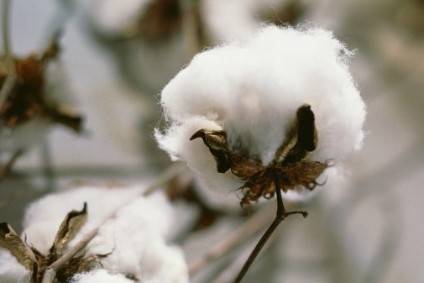
A new report has commended the fact that public sector workers in Uzbekistan were not forced to plant and weed cotton this spring – but warns serious structural problems in the sector threaten to undermine this development.
Published by Cotton Campaign member the Uzbek-German Forum, the ten page report ‘We want farmers to have full freedom’ is based on 270 interviews with farmers, public sector employees, labour union officials, local government and the local neighbourhood council, as well as visits to cotton fields, public sector institutions, banks, markets, and government agencies in six regions and the republic of Karakalpakstan from May to July 2018.

Discover B2B Marketing That Performs
Combine business intelligence and editorial excellence to reach engaged professionals across 36 leading media platforms.
“The shift from mobilisation of workers in education and healthcare institutions to mostly voluntary labour to prepare fields is significant and should be commended, but serious structural problems remain,” says Umida Niyazova, UGF executive director. “Farmers are required to produce cotton by the state, often at a loss, and face crippling penalties if they don’t meet their quotas.”
According to the Cotton Campaign, spring cotton fieldwork, including field preparation, planting, thinning, weeding, and topping, starts in April or early May, depending on the region, and can last several months. It requires fewer workers than the annual cotton harvest, which typically takes place from early September through early November each year.
The International Labour Organization’s third-party monitoring estimates hundreds of thousands of Uzbekistan citizens were forced to pick cotton under threat of penalty during the 2017 harvest.
Farmers say their ability to pay for voluntary spring labour in 2018 is due to an increase in the cotton procurement price (the price set by the government at which farmers are required to sell their crop to the government) and ability to access cash to pay for inputs.

US Tariffs are shifting - will you react or anticipate?
Don’t let policy changes catch you off guard. Stay proactive with real-time data and expert analysis.
By GlobalDataHowever, some farmers said the amounts allocated were not sufficient to attract voluntary labour and they covered the costs of spring fieldwork from their own resources. Farmers and local administrators alike are still bound by government-imposed quotas for cotton production. Penalties for missing those quotas can be severe, including physical violence and loss of land, the report notes.
“What happens during the 2018 harvest is going to be an important sign of how seriously the government of Uzbekistan takes its obligation under international law to end the use of forced labour in the cotton sector,” says Judy Gearhart, executive director of the International Labor Rights Forum, a founding member of the global Cotton Campaign. “We have seen an important rhetorical commitment to ending forced labour, but the continuing use of public sector employees for forced labour in other sectors, such as construction and street cleaning, shows that much work remains to be done to end, prevent, and punish the use of forced labour.”
As the report points out, the government of Uzbekistan has made public high-level commitments to end forced labour in cotton production. This includes a directive from President Shavkat Mirziyoyev to the Prime Minister to take necessary measures to ensure no workers in the public sectors participate in cotton production. Some forcibly mobilised cotton pickers were ordered back from the fields during the 2017 harvest after World Bank president Jim Yong Kim urged Mirziyoyev to address forced labour, but many of those were extorted to pay for replacement workers or eventually returned to the fields.
“A decade of international pressure from governments, companies, civil society and others has been successful in motivating the Uzbek government to acknowledge the problem and begin to initiate reforms,” says Patricia Jurewicz, founder and vice president of the Responsible Sourcing Network. “Close, independent monitoring of the 2018 harvest is needed to see how far the government’s commitments have actually contributed to ending forced labour in Uzbek cotton production, and what actions still need to occur.”
The Cotton Campaign developed a roadmap with steps for the government of Uzbekistan to follow to dismantle the forced labour system of cotton production, which was presented to government officials during high-level meetings in Tashkent in May.
Last month, Cotton Campaign joined forces with a raft of industry associations to put pressure on the US government to reverse its recent proposal to remove Uzbekistan cotton from a list of products that may have been produced by forced or child labour.
In an open letter they stated that despite progress by the government of Uzbekistan to end forced child labour, it still occurred during the 2017 harvest. The letter was issued in response to a request for comments on the proposal.





